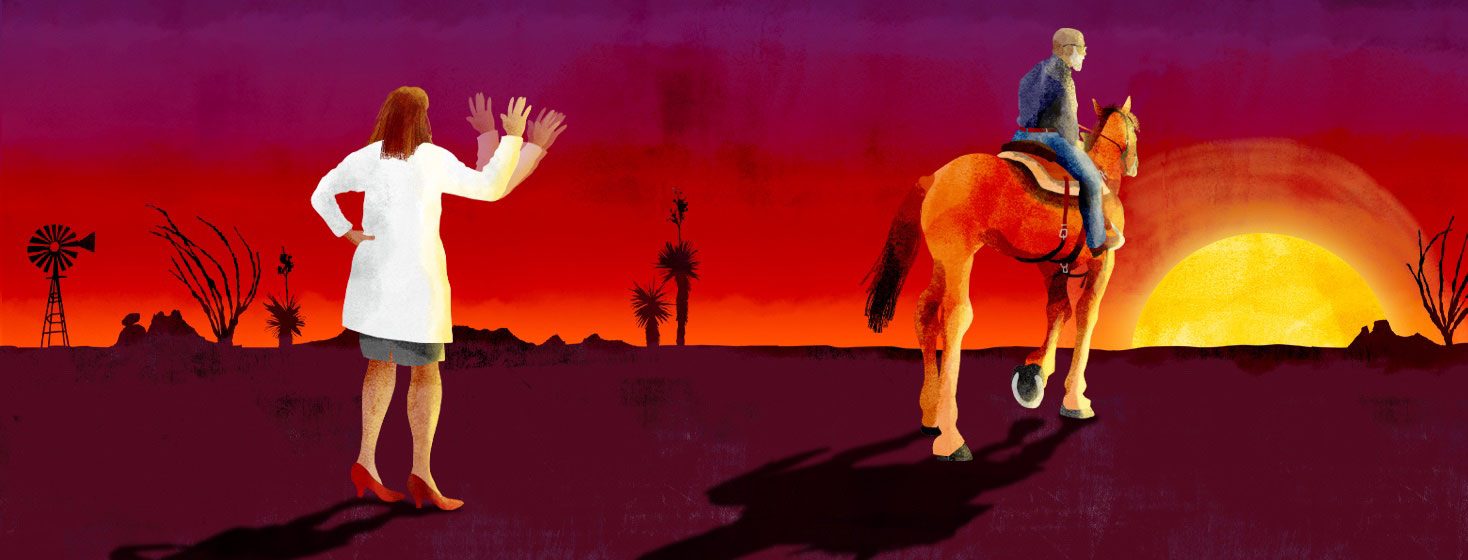How I Outlasted My Doctor
Earlier this year my doctor said something that I hoped I would never hear.
“I’ve decided to retire.”
My reaction was immediate and intense. For 15 years we had been partners in my healthcare journey and now I was faced with navigating aging with HIV alone. I was hurt and I was angry.
Of course, that was a completely selfish response. She had been treating HIV since sometime in the ’80s. Her entire life had been dedicated to this cause and I knew she had earned a respite from the struggle.
Choosing doctors
Since my diagnosis, I’ve only had a handful of doctors. The first guided me into therapy and through my first opportunistic infections. But I didn’t choose him. We met when he cared for my then partner as he progressed from AIDS to death.
I stayed with that doctor through a sense of obligation until I moved out of town.
After that, I bounced around over a couple of years until I connected with someone who was recommended by a friend. Another doctor I didn’t actually choose for myself.
My list for finding a good doctor
It wasn’t until I moved to Atlanta after Hurricane Katrina that I actually sat down and interviewed my next healthcare provider. I remember writing a list of things I wanted in my doctor:
- Extensive experience treating people.
- Able to accept input on my treatment.
- Aggressive in keeping me alive.
- Sympathetic should that no longer be a possibility.
- A doctor who would listen to me when I needed to talk.
I did find the doctor I was looking for and we worked together for two years until she passed away from cancer. I began the search and interview process again, this time adding to my list:
- Will be around as long as I will.
Dr. Nguyen ended up being everything I needed and more. She never held her tongue and had a wicked sense of humor. Mostly she was a friend walking alongside me on this journey.
While your needs will be unique to yourself, I’d like to share some of the reasons our partnership was successful.
Mutual respect
Over the years I’ve learned to appreciate the effort that people put into their profession. It’s a combination of maturity and my own desire to be viewed as someone who knows what they are talking about.
I established from the start that I did my homework and that both of us would take part in the decision-making process. But I balanced that with the acceptance that there would be a time when she would have to make the choices that I could not.
Direct conversations
There was never a time when either of us held back on what we had to say to the other. I’m not a person who needs things wrapped up in pretty words to digest what is going on. I want to know what we need to do about it.
In return, I believe she appreciated when I challenged her. We often hugged at the end of my checkups so that we would leave any tense discussions on the examining room floor.
I came prepared
During my visits, I always made sure I was aware of what new treatment options were in the pipeline. I remembered any values on my bloodwork that we’ve been monitoring. I knew when it was time for vaccine updates and what new information was available on long-term survivors.
Before treating my lipodystrophy, I did all my research on the drug used, and the company that made it and even brought the paperwork for the co-pay aid for her team to fill out.
I was honest
This is what I consider to be the key to any healthy doctor-patient relationship. You must tell them the truth. If you’ve missed taking your medicine, you have to let them know. If you’re depressed or in a cycle of substance abuse, you have to own up. It’s the only way they will be able to properly care for you.
When my doctor asked me how I was doing I already knew what I was going to say. I always spent a few minutes before the visit writing down what she needed to know. I would pull my little list out and read things off to her.
This really helped me to say the things that I might otherwise have hesitated about or felt embarrassed by.
Consider your partnership
Everyone is different and you should take the time to discover what you consider important to make a successful partnership with your doctor.
I’ll miss Dr. Nguyen, but I am looking forward to putting the lessons I’ve learned into building a team with my new doctor.
I’ll let you know how that goes.
What have you found to be important when choosing a new doctor? Share here.

Join the conversation